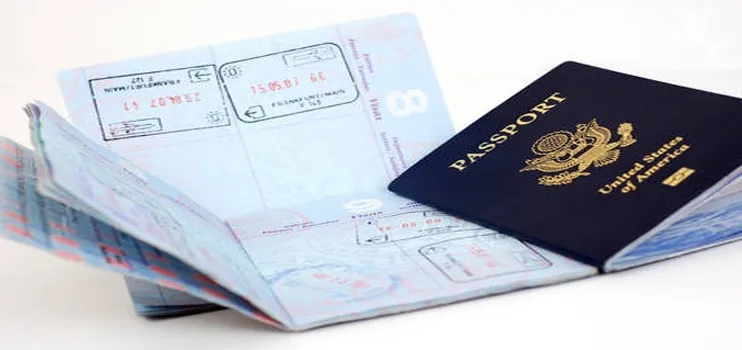
Scrap onerous visa system: IATA
Jun 05, 2018

The International Air Transport Association (IATA) has called for the elimination of onerous visa systems that hinder global travel and trade. These complex and often restrictive visa requirements create barriers for passengers and cargo, negatively impacting the aviation industry and economies worldwide. IATA emphasizes that simplifying visa processes can enhance connectivity, promote tourism, and facilitate business travel, ultimately benefiting countries economically. By advocating for streamlined and efficient visa policies, IATA aims to foster a more open and accessible travel environment, encouraging greater international collaboration and growth in the aviation sector.
The International Air Transport Association (IATA) has been vocal about the need to scrap the onerous visa system that has long plagued international travel. With the rise of globalization and the increasing importance of air travel in today's interconnected world, IATA's stance on this matter is crucial. The current visa system not only complicates travel but also hinders economic growth and tourism. In this article, we will explore the implications of the visa system, IATA's recommendations, and how this can benefit both travelers and the aviation industry.
The Burden of the Current Visa System
The existing visa system is often seen as a significant barrier to travel. Travelers face a myriad of challenges, including lengthy application processes, high fees, and the uncertainty of approval. According to IATA, these obstacles discourage potential travelers, leading to a decline in air travel demand. This ultimately affects the economy, as less travel results in reduced spending in various sectors, including hospitality, transportation, and retail.
| Challenges of the Current Visa System | Impact on Travel |
|---|---|
| Lengthy application processes | Discourages potential travelers |
| High visa fees | Limits travel budgets |
| Uncertainty of approval | Creates travel hesitancy |
IATA's Recommendations for a Streamlined Visa Process
IATA proposes a complete overhaul of the current visa system, advocating for a streamlined process that would facilitate easier travel for passengers. One of the main recommendations is to adopt a more simplified visa application process that leverages technology. This can include online applications, automated approvals, and the use of biometric data to expedite entry. By implementing these technological advancements, countries can maintain security without compromising the convenience of travelers.
Another significant recommendation from IATA is the establishment of bilateral agreements between countries to allow visa-free travel. Such agreements would not only enhance tourism but also promote international business and cultural exchanges. Countries that have adopted similar frameworks have reported significant increases in tourist arrivals, leading to economic benefits.
The Economic Benefits of Scrapping the Onerous Visa System
Removing the cumbersome visa requirements can lead to a multitude of economic advantages. Firstly, increased travel leads to higher spending in destination countries. According to IATA, a significant increase in tourist arrivals can directly boost GDP and create jobs in various sectors.
| Economic Impact of Increased Travel | Potential Benefits |
|---|---|
| Higher tourist spending | Boosts GDP |
| Job creation in hospitality | Supports local economies |
| Increased international business | Promotes global trade |
Challenges to Implementing Changes
While the benefits of scrapping the onerous visa system are clear, there are challenges to implementation. One of the primary concerns is national security, as countries must balance the need for security with the desire to facilitate travel. IATA emphasizes that security measures can still be maintained while simplifying the process. By utilizing advanced technologies and data-sharing agreements, countries can enhance security without imposing heavy burdens on travelers.
The Role of Stakeholders in Reforming Visa Policies
For any reform to be effective, collaboration among various stakeholders is essential. Governments, airlines, and tourism boards must work together to advocate for change. IATA has been actively engaging with these stakeholders to promote a unified approach to visa reform. By presenting data-driven arguments and showcasing successful case studies, IATA aims to persuade decision-makers to adopt more traveler-friendly policies.
Conclusion: A Call to Action
In conclusion, the call to scrap the onerous visa system is not just a matter of convenience; it is a crucial step towards fostering economic growth and enhancing the travel experience. The recommendations set forth by IATA highlight the potential for a more efficient and secure visa process that benefits both travelers and nations. By embracing change and collaborating across sectors, we can pave the way for a more accessible and prosperous future in air travel.
As we look to the future, it is imperative for stakeholders to recognize the importance of these changes. The aviation industry, supported by a more streamlined visa policy, can thrive, and in turn, contribute positively to global economies. The time for reform is now, and with collective effort, we can make international travel a more seamless experience for everyone.
Related Articles

Explore Thailand: The Best Islands to Visit for Paradise, Adventure, and Relaxation

The Ultimate Guide to the Best Islands in Thailand for Your Next Getaway

Do babies need passports? How to get a passport for a newborn

How to get a U.S. passport fast: here’s how to expedite the process

What is Mobile Passport Control: 5 reasons why you should use it

SENTRI vs. Global Entry: A detailed guide

Do you need a passport to go to the Bahamas? Let’s find out

Do you need a passport to go to Mexico? A detailed guide

Do you need a passport to go to Canada? We got the answer

Do You Need a Passport for a Cruise: An Essential Travel Guide

Booster Seat Requirements: All the Rules to Follow in Your Rental Car

What Are the World’s Most Powerful Passports, and How Does Yours Rank?

How to Take a Passport Photo at Home: A Helpful Guide

You've got to have heart! Southwest's new livery

Your opinion: Should water be free on low cost carriers?

Young women bolder than guys as solo travellers
